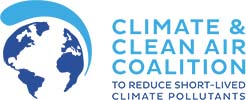About
Recognizing the world needs “a sprint, a marathon, and an ultramarathon all at once” on tackling climate change, the Forum convened leaders to build up global ambition to rapidly reduce emissions from methane and other short-lived climate pollutants. Participants heard from high-level officials and actors from both government and the private sector on a variety of themes focused around achieving fast climate action.
Final report
Summary report 27–29 September 2022
All coverage
As opposed to their infamous cousin carbon dioxide (CO2), short-lived climate pollutants (SLCPs), like methane and hydrofluorocarbons (HFCs), only remain in the Earth’s atmosphere for a few years when they are emitted by humans. However, their impact is much more intense in a shorter period of time than that of CO2: their potential to warm the atmosphere can be between 80 to 1,500 times greater. Thus, acting to reduce SLCP emissions is as urgent as reducing CO2, and it requires the same level of international collaboration.
To further address these issues, the Global Methane, Climate and Clean Air Forum convened leaders and practitioners to build up global ambition on methane action. Participants heared from high-level officials and actors from both government and the private sector on a variety of themes focused around achieving fast climate action.
Sessions focused on, among others,
- outlining high-level policy, political, and scientific arguments for global ambition on methane action, and defining a path forward;
- setting out the scientific case for action on methane and SLCPs;
- highlighting the actions of national policies in reducing SLCPs; and
- setting out perspectives on SLCP finance, including in the private sector.
Participants also attended technical sessions on science planning, air quality, agriculture and food systems, waste, coal, and oil and gas, among others.
The meeting, which took place from 27-29 September 2022 in Washington DC, US, was co-convened by: the Climate and Clean Air Coalition to Reduce Short-Lived Climate Pollutants (CCAC), a voluntary partnership of governments, intergovernmental organizations, businesses, scientific institutions, and civil society organizations committed to improving air quality and protecting the climate through actions to reduce SLCPs; and the Global Methane Initiative, an international public-private partnership focused on reducing barriers to the recovery and use of methane as an energy source.
Funding for Earth Negotiations Bulletin coverage of this Forum was provided by the CCAC Secretariat.


